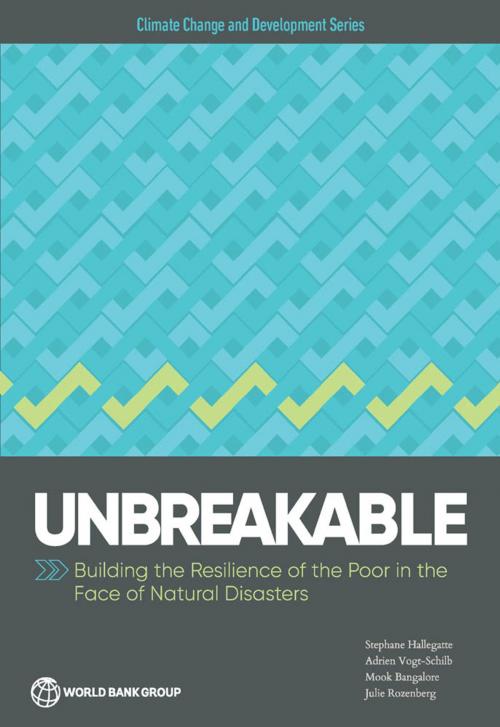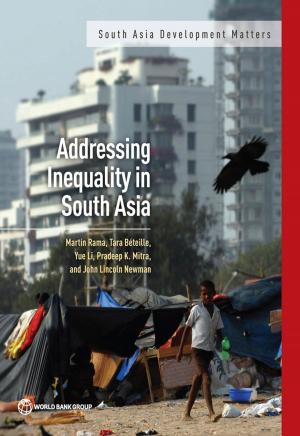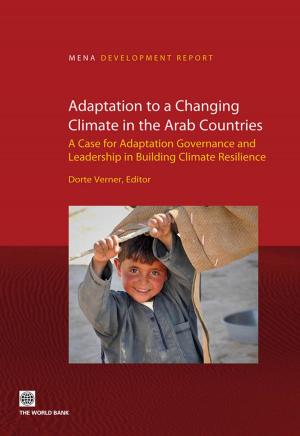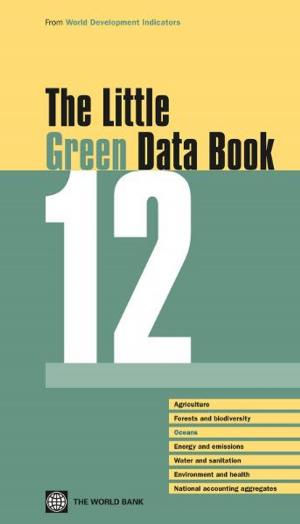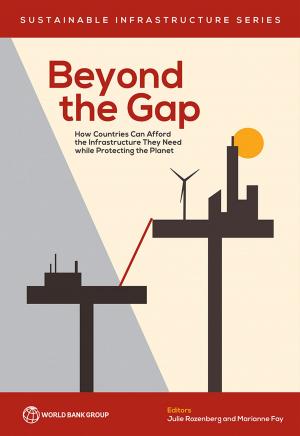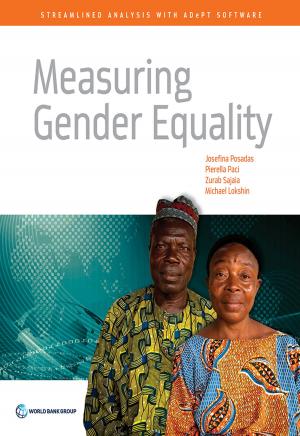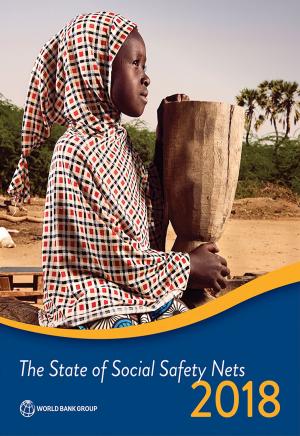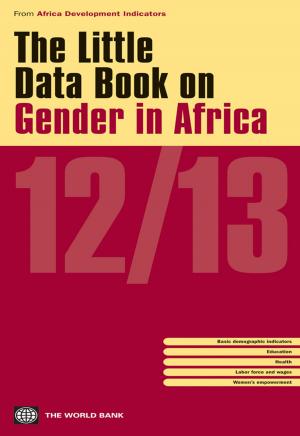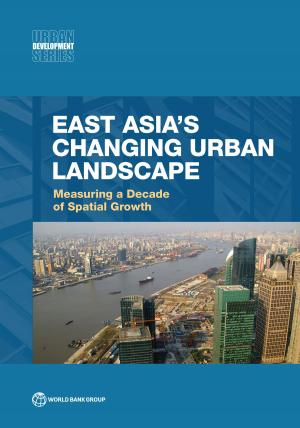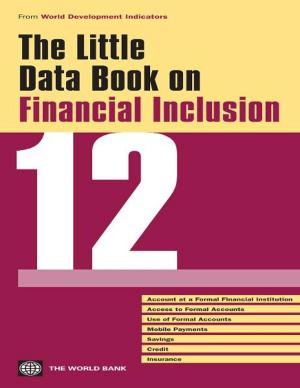Unbreakable
Building the Resilience of the Poor in the Face of Natural Disasters
Business & Finance, Industries & Professions, Insurance, Nonfiction, Science & Nature, Nature, Environment, Natural Disasters, Economics, Economic Development| Author: | Stephane Hallegatte, Adrien Vogt-Schilb, Mook Bangalore, Rozenberg | ISBN: | 9781464810046 |
| Publisher: | World Bank Publications | Publication: | November 24, 2016 |
| Imprint: | World Bank Publications | Language: | English |
| Author: | Stephane Hallegatte, Adrien Vogt-Schilb, Mook Bangalore, Rozenberg |
| ISBN: | 9781464810046 |
| Publisher: | World Bank Publications |
| Publication: | November 24, 2016 |
| Imprint: | World Bank Publications |
| Language: | English |
'Economic losses from natural disasters totaled $92 billion in 2015.' Such statements, all too commonplace, assess the severity of disasters by no other measure than the damage inflicted on buildings, infrastructure, and agricultural production. But $1 in losses does not mean the same thing to a rich person that it does to a poor person; the gravity of a $92 billion loss depends on who experiences it. By focusing on aggregate losses—the traditional approach to disaster risk—we restrict our consideration to how disasters affect those wealthy enough to have assets to lose in the first place, and largely ignore the plight of poor people. This report moves beyond asset and production losses and shifts its attention to how natural disasters affect people’s well-being. Disasters are far greater threats to well-being than traditional estimates suggest. This approach provides a more nuanced view of natural disasters than usual reporting, and a perspective that takes fuller account of poor people’s vulnerabilities. Poor people suffer only a fraction of economic losses caused by disasters, but they bear the brunt of their consequences. Understanding the disproportionate vulnerability of poor people also makes the case for setting new intervention priorities to lessen the impact of natural disasters on the world’s poor, such as expanding financial inclusion, disaster risk and health insurance, social protection and adaptive safety nets, contingent finance and reserve funds, and universal access to early warning systems. Efforts to reduce disaster risk and poverty go hand in hand. Because disasters impoverish so many, disaster risk management is inseparable from poverty reduction policy, and vice versa. As climate change magnifies natural hazards, and because protection infrastructure alone cannot eliminate risk, a more resilient population has never been more critical to breaking the cycle of disaster-induced poverty.
'Economic losses from natural disasters totaled $92 billion in 2015.' Such statements, all too commonplace, assess the severity of disasters by no other measure than the damage inflicted on buildings, infrastructure, and agricultural production. But $1 in losses does not mean the same thing to a rich person that it does to a poor person; the gravity of a $92 billion loss depends on who experiences it. By focusing on aggregate losses—the traditional approach to disaster risk—we restrict our consideration to how disasters affect those wealthy enough to have assets to lose in the first place, and largely ignore the plight of poor people. This report moves beyond asset and production losses and shifts its attention to how natural disasters affect people’s well-being. Disasters are far greater threats to well-being than traditional estimates suggest. This approach provides a more nuanced view of natural disasters than usual reporting, and a perspective that takes fuller account of poor people’s vulnerabilities. Poor people suffer only a fraction of economic losses caused by disasters, but they bear the brunt of their consequences. Understanding the disproportionate vulnerability of poor people also makes the case for setting new intervention priorities to lessen the impact of natural disasters on the world’s poor, such as expanding financial inclusion, disaster risk and health insurance, social protection and adaptive safety nets, contingent finance and reserve funds, and universal access to early warning systems. Efforts to reduce disaster risk and poverty go hand in hand. Because disasters impoverish so many, disaster risk management is inseparable from poverty reduction policy, and vice versa. As climate change magnifies natural hazards, and because protection infrastructure alone cannot eliminate risk, a more resilient population has never been more critical to breaking the cycle of disaster-induced poverty.
